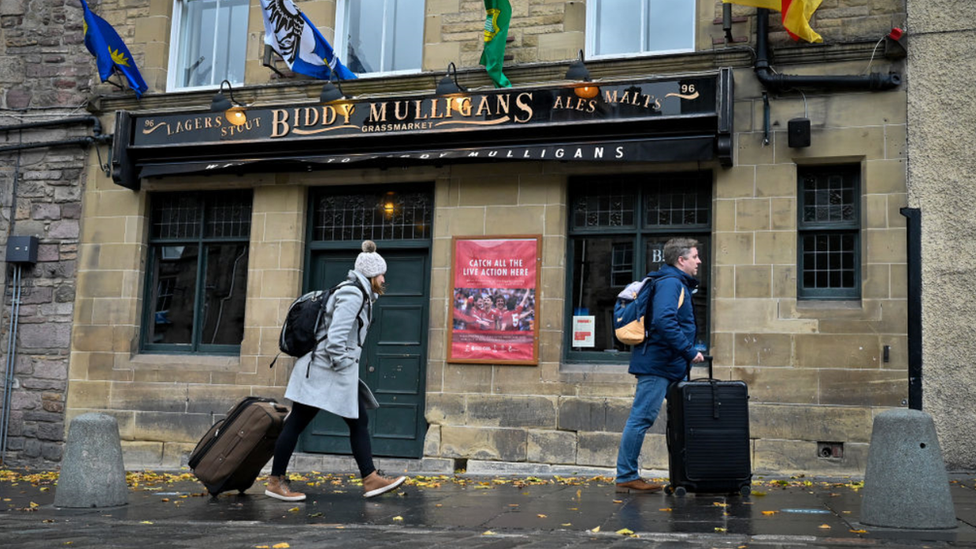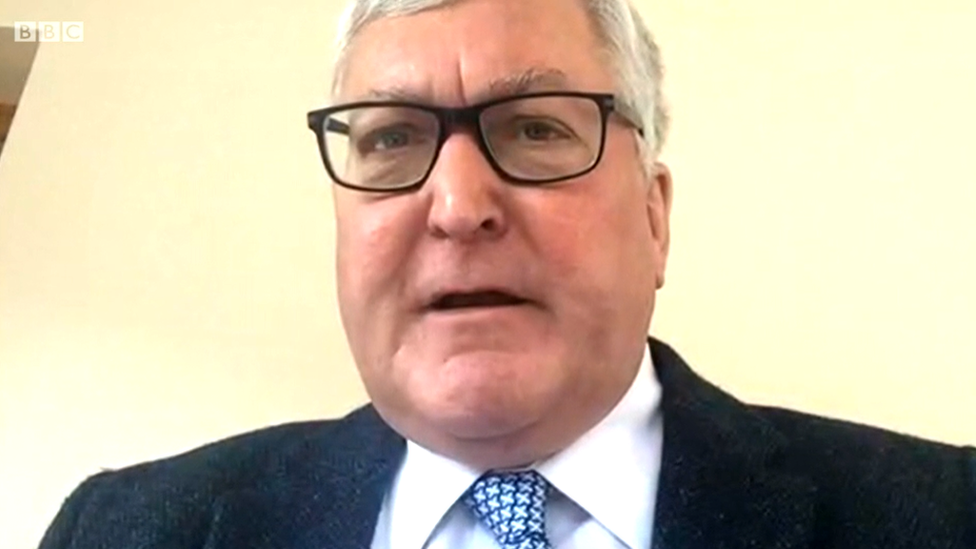Covid in Scotland: 'No guarantee' pubs will reopen in two weeks
- Published

Pubs in the central belt closed on Friday and are not due to reopen until 25 October at the earliest
Scotland's hospitality minister has said there is "no guarantee" that pubs and restaurants across the central belt will reopen in two weeks' time.
The Scottish government ordered their closure on Friday night as part of new Covid-19 restrictions., external
Fergus Ewing said he was "acutely aware" of the "very serious, adverse impacts" on the hospitality sector.
But he said the restrictions were "absolutely necessary" and could continue past 25 October.
Mr Ewing told BBC Scotland's Sunday Politics programme: "Were they not in place, the worry is that we may have had to go to something even more stringent.
"The first minister had made it clear that she really wishes to avoid a further lockdown - as does, I believe, the leadership in the other parts of the United Kingdom.
"That is absolutely the case. But there can be no guarantees."
The new restrictions involve licensed premises in Greater Glasgow and Clyde, Lothian, Lanarkshire, Forth Valley and Ayrshire and Arran being closed until 25 October - although they can still serve takeaways.
Hospitality venues in the rest of Scotland are allowed to open, but are only permitted to serve non-alcoholic drinks and food indoors between 06:00 and 18:00.
Licensed premises in these areas are still able to serve alcohol in outdoor areas, such as beer gardens, up to the 22:00 curfew introduced in September.

Fergus Ewing accepted the restrictions were having very serious impacts on the hospitality industry
Reacting to criticism that the hospitality sector had been treated unfairly, Fergus Ewing said the Scottish government was following the best scientific advice.
He said there were "no absolute certainties" when it comes to establishing how a person caught coronavirus.
But he said illegal house parties or hospitality settings "where alcohol is imbibed and inhibitions lax" appeared to be the places where the risks were greatest.

